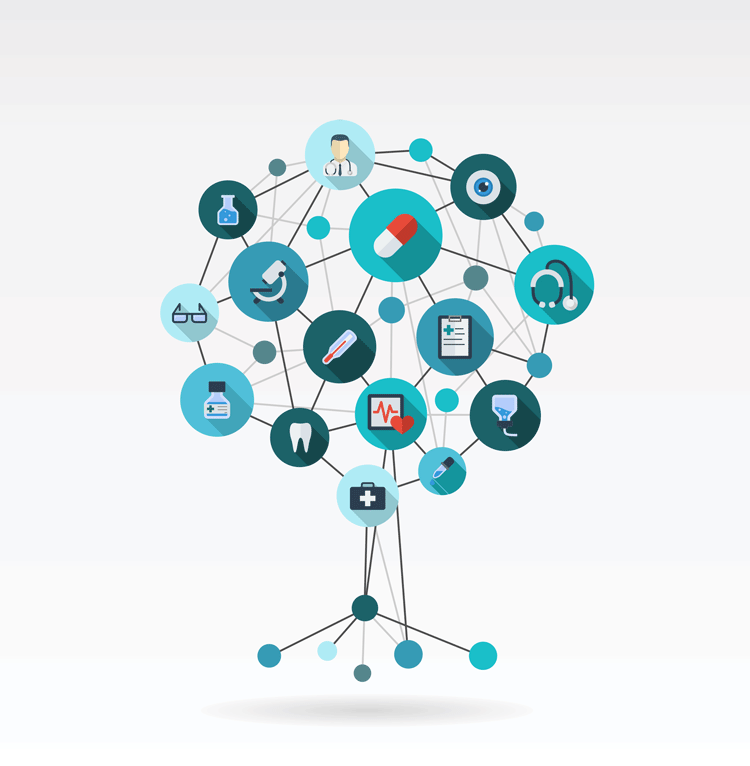 The effects of digital medicine on global healthcare
The effects of digital medicine on global healthcare
Digital technology in healthcare is increasingly becoming a part of everyday life and integral to future medical advances. Recently, countries have been acknowledging these developments and approving the use of cutting-edge techniques in the medical field. Showcasing this important turn of events, Harsha Madannavar, Helen Chen and Justin Wang, from L.E.K. Consulting, explain how digital medicine can help solve three core problems bedevilling the development and delivery of healthcare not only in China, but around the world.
In November 2017, the US Food and Drug Administration (FDA) approved what is perhaps the boldest use of digital technology in healthcare: a pill that houses an ingestible sensor that captures information about whether the patient has complied with his or her medication regimen. A patient ingests the pill and sends the data to a patch worn on the torso. From there the information is wirelessly sent to a mobile phone app, which allows both the patient and the physician to track how the patient is using and responding to medication.
The FDA’s approval of Japan-based Otsuka Pharmaceutical’s Abilify MyCite for certain psychiatric conditions — a first for digital medicine — will be seen as a landmark in patient-centred care. The problem that digital medicine addresses is profound. Approximately 50 per cent of patients do not regularly take their prescribed medication and 20–30 per cent of prescribed medications are never picked up at the pharmacy. The cost of medication nonadherence runs into the billions.
Bridging the gaps in global healthcare
The benefits of digital medicine go beyond cost saving. Over time, it can help solve three core problems — also known as gaps — that are bedevilling the development and the delivery of healthcare around the world.
Outcomes. For starters, digital medicine can bridge these gaps. When physicians have the ability to track their patients’ compliance when it comes to taking a prescribed medication, they can manage their care better. This results in superior health outcomes. Imagine algorithms found in Amazon.com applied to health instead of shopping. When precise information about an individual’s use of drugs is analysed and then aggregated, healthcare professionals can gain better insight about when to intervene and how best to allocate time and care with respect to prioritising need-based care. Health outcomes are more likely to happen when health professionals and patients work in concert.
Access. Digital medicine could also bridge the access gap. In many parts of the world, patients live far from a modern medical practice or large medical centre. Digital medicine can alert a physician to events that may require intervention, such as a skipped dose or the presenting of an alarming side effect. This improvement holds the potential for upgrading the speed and accuracy of medical decision-making.
The following factors make China ripe for digital medicine: a majority of the population uses the mobile messaging platform WeChat and healthcare services in both urban and rural areas is insufficient. The rollout of digital medicine in China will revolve around mobile-powered applications including telemedicine and remote consultations.
Innovation. Digital medicine may also play a role in ensuring healthcare sustainably innovates. It may take the healthcare world up to a decade to fully wrap its head around the extraordinary potential of digital medicine.
The data yield from digital medicine offers the potential to select the right patients for a clinical trial or better understand how patients respond to treatment during a clinical trial. It can suggest new avenues of pharmacological research and support portfolio planners in their evaluation of assets and allocation of resources. It can also significantly streamline and focus pharmaceutical research and development (R&D).
Challenges facing digital adoption
The ability of digital medicine to bridge all the above gaps and become a global standard presupposes that it has achieved a critical mass: that doctors have adopted it, regulators are comfortable with it, patients are demanding it and insurance payers are covering it.
Here are where two key challenges come in. First and foremost, there is a degree of scepticism among pharmaceutical companies and physicians. Pharmaceutical companies can be notoriously slow to integrate innovative technologies or platforms. Physicians, particularly those in large hospital systems, will take a wait-and-see attitude towards digital medicine. A few early apps like Otsuka’s Abilify and MyCite will raise awareness of the technology and speed its acceptance in the marketplace. Other parts of the world, such as China, will likely be early adopters, leading the way in healthcare innovation, on mobile phones, apps and social networking.
Another challenge is that privacy concerns may hinder adoption in some parts of the world, particular in Western societies. The experience in China suggests that volunteering personal information, is prevalent although the government has recently begun to explore privacy issues. Physicians’ attitudes will evolve over time and will likely be shaped by patients’ attitudes. Patients from the US and Europe quickly understand who controls their personal information and that allowing a physician to see it helps digital medicine progress. People may soon start to demand access to digital medicine-based solutions.
Global pharma’s continued evolution
One thing is for sure, the world is entering a new period of patient-centred digital health. Digital medicine will play an important role in the evolution of global pharma. From today’s medical industries that enables doctors to prescribe medications to tomorrow’s servicing solutions digital medicine can help consumers reach healthy outcomes.
This is an excerpt from an article originally published at Pharmaceutical Online.
L.E.K. Consulting is a world leading management consulting firm founded in Europe in 1983 and started doing business in China in 1998. L.E.K. Consulting now has 20 offices in Europe, the United States, Asia and Australia, with over 1,200 employees and over 100 partners.


Recent Comments